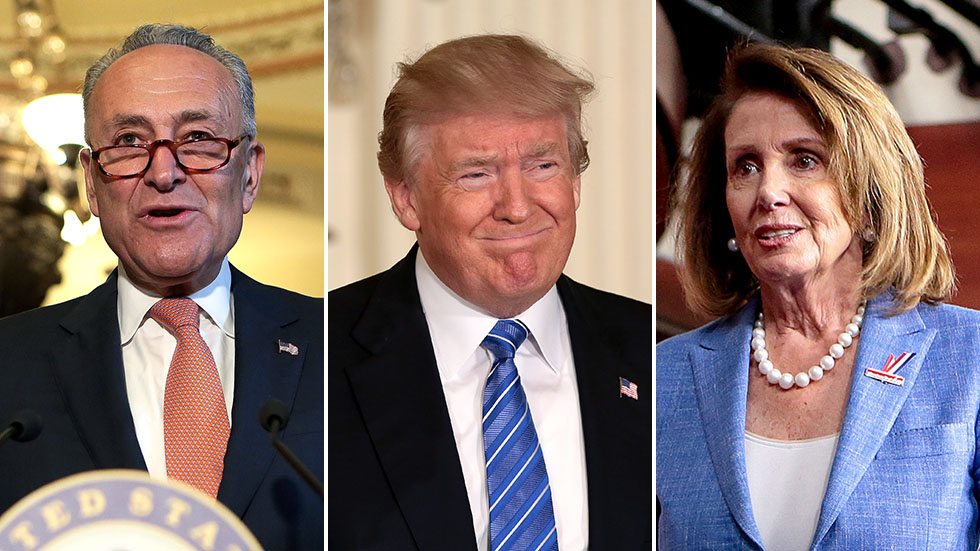This week, President Trump made a deal with Democratic leadership to extend the formal debt ceiling limit by three months (though in practice, much longer). It remains to be seen whether enough rank-and-file members in both parties will go along in the House, but the chances of this deal sticking are pretty high.
The deal is being described as a major surprise due to the president’s frequently acrimonious relations with Democrats. Trump also appeared to double-down on his collaboration with Democratic leadership by voicing support for eliminating the debt ceiling in its entirety.
These moves are being reported as shocking, but in reality, this should be viewed as a natural alliance. Trump’s ideas, to the extent that he has them, have at least as much in common with the left as with the right.
It must be remembered here that Trump has few solid principles or commitments that can stand in the way of deal-making. He is a consummate nationalist, and he believes in “winning”. Beyond that, almost everything else is negotiable.
This understanding helps us account for the president’s behavior during the dysfunctional effort to repeal Obamacare. While the details and relative economic merits of the leading proposal changed frequently over the course of that process, the president was generally supportive of each iteration. His goal, it seemed, was to pass some bill on healthcare that could be sold as a victory. What that bill actually included, was irrelevant.
It is likely that we’ll see this same dynamic play out in other policy areas. But instead of only working with Republicans, who have surely beaten expectations when it comes to political and policy incompetence so far this year, it only makes sense that Trump will reach across the aisle to hash out a series of (mostly bad) centrist bills that he can sign and take credit for.
Among Republicans, Trump’s lack of committed positions and clear disinterest in even the idea of limited government, makes him uniquely suited for bipartisanship. It seems to be only a matter of time before Democrats discover that Trump will support the spending they want as long as they toss in a few tens of billions on unnecessary military spending. And Trump will likely discover that Democrats are more eager to implement his protectionist ideas on trade.
For Trump and the Democrats, this alliance makes sense. If it strengthens from here, we can expect Congress to get a lot more productive and, with few exceptions, we can also expect government policies to get even worse.
































